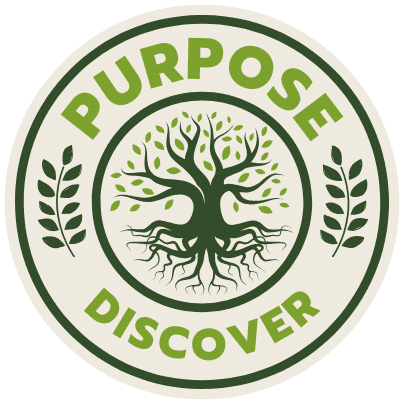Sometimes life’s loudest truths don’t come from introspection or self-help books but from simply rolling up your sleeves and focusing on someone else’s needs. When you serve others—really serve, not the superficial kind of helping that’s about ticking boxes or social media clout—you start to see yourself in sharp relief. It’s like holding a mirror up that doesn’t just reflect your face but reveals the contours of your character, your hidden capabilities, and your true grit.
Think about it: when you’re caught up in your own head, your strengths can feel like vague ideas or abstract qualities. You might say, “I’m resilient,” or “I’m empathetic,” but how do you know? Serving others throws you into unpredictable situations where those strengths aren’t just words; they’re survival tools. Suddenly, empathy isn’t just a feel-good buzzword—it’s the reason someone opens up to you. Resilience isn’t a theory; it’s what keeps you showing up when the going gets tough for the people depending on you.
The Unfiltered Self Emerges When You Serve
Serving others often strips away the polished version of ourselves that we present to the world. The ego takes a backseat. When you’re helping a person in genuine need—whether that’s volunteering at a shelter, mentoring, or simply offering a listening ear—you can’t hide behind pretense. Your real personality, your strengths and weaknesses, come out swinging.
There’s no room for bluffing here. You realize, maybe for the first time, that you’re patient beyond what you thought possible or that you have a knack for calming chaos. Or maybe you discover you’re not as compassionate as you’d hoped, and that’s okay too. These moments are like personal litmus tests. They reveal what you’re really made of, in ways introspection alone never could.
Can you imagine discovering your leadership skills not in a boardroom, but while organizing a community drive? Or finding your creativity sparked not through a design brief but by figuring out how to make donated clothes appealing to those who need them most? Serving others nudges you into new roles where your strengths reveal themselves in surprising ways.
Why Putting Others First Reflects Back on You
There’s a strange kind of magic when you put someone else’s needs before your own. It’s not a sacrifice but a spotlight that illuminates your own abilities. When you focus on lifting someone else up, your own potential starts to rise into view, clear as day.
Serving forces you to listen—really listen. And in the process, you learn which of your traits resonate most. Are you the one who can diffuse tension with humor? The steady presence in a storm? Or the problem-solver who sees solutions where others see dead ends? These aren’t just skills; they’re strengths that form the backbone of who you are.
I’ve seen people surprised by their own fortitude when they volunteer in crisis zones, or their diplomacy when mediating conflicts in community groups. The act of serving shakes you out of ego-fueled isolation and into a more authentic, connected version of yourself.
Strengths Live in the Messy Middle
Serving others isn’t glamorous. It’s often messy, unpredictable, and emotionally exhausting. It demands patience, creativity, and resilience all at once—and that’s where your strengths truly get tested. In the difficult moments, when you feel like giving up, that’s when you discover what you’re really made of.
Imagine helping a struggling student who’s on the brink of giving up or working with a neighbor facing hardships you can barely fathom. Those moments highlight your perseverance, your empathy, your ability to inspire hope. You realize strength isn’t about never breaking; it’s about bending without shattering.
The messy middle is where strengths stop being abstract concepts and start becoming your lived reality. It’s where you learn how deeply you can connect with others and how fully you can commit to something bigger than yourself.
Serving Isn’t Just About Others—It’s a Deep Dive Into Self
You might think serving is all about giving, but it’s also an extraordinary act of receiving. When you help others, you invite them into your world, and in return, you enter theirs. This exchange enriches your own understanding of your talents and limitations.
It’s a little counterintuitive. You might expect serving to drain you, but more often, it energizes. There’s a profound satisfaction and clarity that comes from seeing the positive impact of your efforts. That feeling anchors your strengths in reality and pushes you to refine them further.
If you’re searching for deeper meaning or a clearer sense of purpose, serving others can act as a kind of compass. It points you toward the qualities that define you—qualities that often lie dormant until tested by real-world challenges and human connection.
The Ripple Effect of Discovering Your Strengths Through Service
When you uncover your strengths while serving, something remarkable happens: you become more confident, more intentional, and more effective not only in helping others but in your own life. This clarity often spills over into career choices, relationships, and personal goals.
It’s like learning to swim by jumping into the deep end rather than paddling around the shallow pool of safe self-awareness. The lessons you learn through service are vivid and sticky. They shape your identity in ways that can’t be undone.
And, as your understanding of your strengths deepens, so does your ability to serve more meaningfully. It’s a cycle of growth and impact that feeds itself. You become a better helper because you know yourself better, and you know yourself better because you see your strengths shine in the crucible of service.
What Happens When Strengths Go Unrecognized
Ignoring the power of serving others to highlight your strengths is a missed opportunity. Many people wander through life unsure of their true capabilities because they’ve never been put to the test outside their comfort zones or self-reflection.
Without real-world challenges rooted in connection, strengths remain vague and underdeveloped. There’s a loneliness in that kind of uncertainty—a quiet dissatisfaction because you don’t fully know what you can offer the world or yourself.
Serving isn’t a magic pill, but it’s one of the clearest paths toward self-awareness that exists. It’s a call to action that demands authenticity and reveals the raw materials of your character.
Embarking on the Journey: How to Start Serving with Purpose
Jumping into serving others doesn’t require grand gestures—it begins with small choices. Notice who in your life or community needs support. Maybe it’s an elderly neighbor, a local charity, or a cause that fires you up. Get involved, and watch the layers of your strengths unfold naturally.
For anyone searching for a starting point or wanting to understand how serving can clarify their personal strengths, resources exist that help map this journey. A resource like discovering your life’s calling through service can be a helpful guide to making sense of this deeply personal path.
Does Serving Make You Stronger? The Verdict
Yes. But not in the way some cheesy motivational posters suggest. Serving others clarifies strengths by putting them to the test in the messy, unpredictable arena of human need. It teaches resilience, empathy, leadership, and creativity not as abstract virtues but as practical, lived experiences. It strips away ego and reveals your authentic self.
So next time you wonder who you really are or what you’re capable of, try serving someone else first. Your strengths might just be waiting to meet you there.
If you want to dive deeper into how purposeful service can shape your identity and reveal your true power, consider exploring perspectives from a dedicated purpose discovery resource. You might find the clarity you’ve been chasing all along, served up with a side of unexpected insight.

